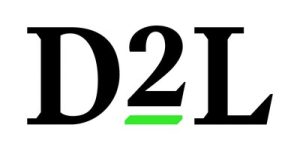SmartAsset and Yahoo Finance LLC may earn commission or revenue through links in the content below.
I am a healthy, active 69-year-old with $370,000 in equities but I’m getting nervous that stocks are overvalued. My portfolio has no bonds. I am interviewing financial planners but due to a negative experience with a firm a few years ago, I am having a hard time trusting anyone else with my hard-won savings. What is the best DIY way to create a bucket strategy using index funds? Or what is your advice for finding an advisor. I love to talk about money!
– Cynthia
A 100% allocation to equities is certainly an aggressive position. That’s true whether you believe the market is overvalued or not, so I understand your concern. I also think you’re going in the right direction in regard to index investing, whether you do it yourself or use an advisor. I’m happy to give you my thoughts on both how to do it yourself and where an advisor might come into play.
If you need help finding a financial advisor, this free matching tool can connect you with fiduciary advisors who serve your area.
You’ve mentioned that having all of your money invested in equities is making you nervous. Yes, this is far outside a standard allocation range for a 69-year-old. You would likely benefit from dialing this back. Two points in particular are worth mentioning.
First, you’re better off evaluating your investments through the lens of your financial plan as opposed to whether you think the market is overvalued. That means thinking about your goals, time horizon and risk profile. Then consider how market fluctuations and return expectations could affect your ability to meet those goals. Your goals and risk profile should drive your asset allocation choice.
Second, when thinking about your portfolio in the context of your total financial plan, you may find that your equity allocation makes sense after all. If you can cover your expenses with fixed sources of income like Social Security, pensions or annuities, the equity volatility may not pose as much of a risk. If you aren’t relying on this money for regular withdrawals, you may be able to justify a higher stock allocation depending on your goals and risk tolerance.
I’m not suggesting a 100% equity allocation is the right path for you. I’m only presenting this hypothetical scenario to illustrate how and when an all-equity portfolio may be appropriate.
Your reality likely isn’t that extreme, however. You may need to take regular withdrawals to cover at least a portion of your ordinary living expenses. Ultimately, this is a conversation to have with an advisor. (And if you need help finding an advisor, connect with your advisor matches today.)



